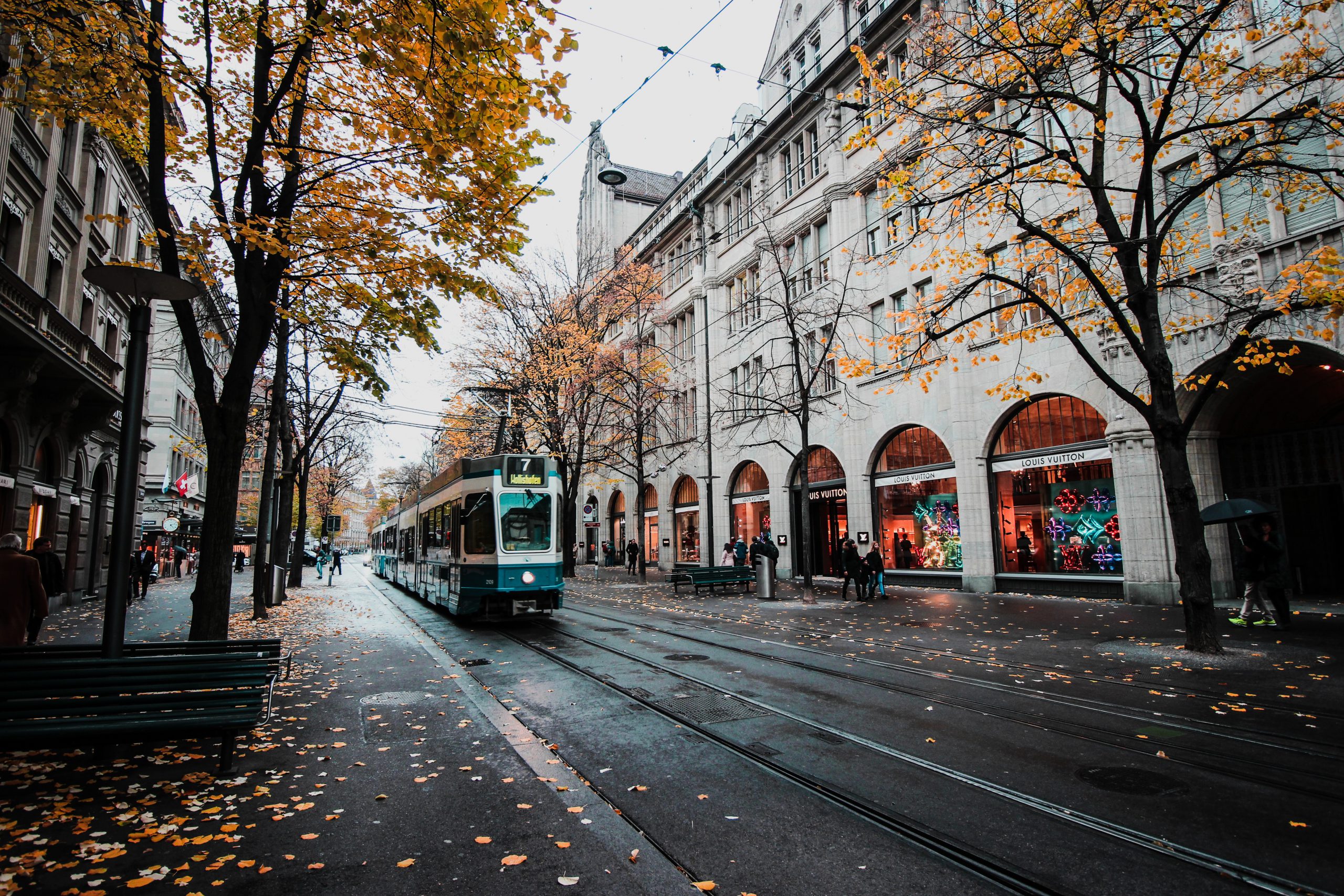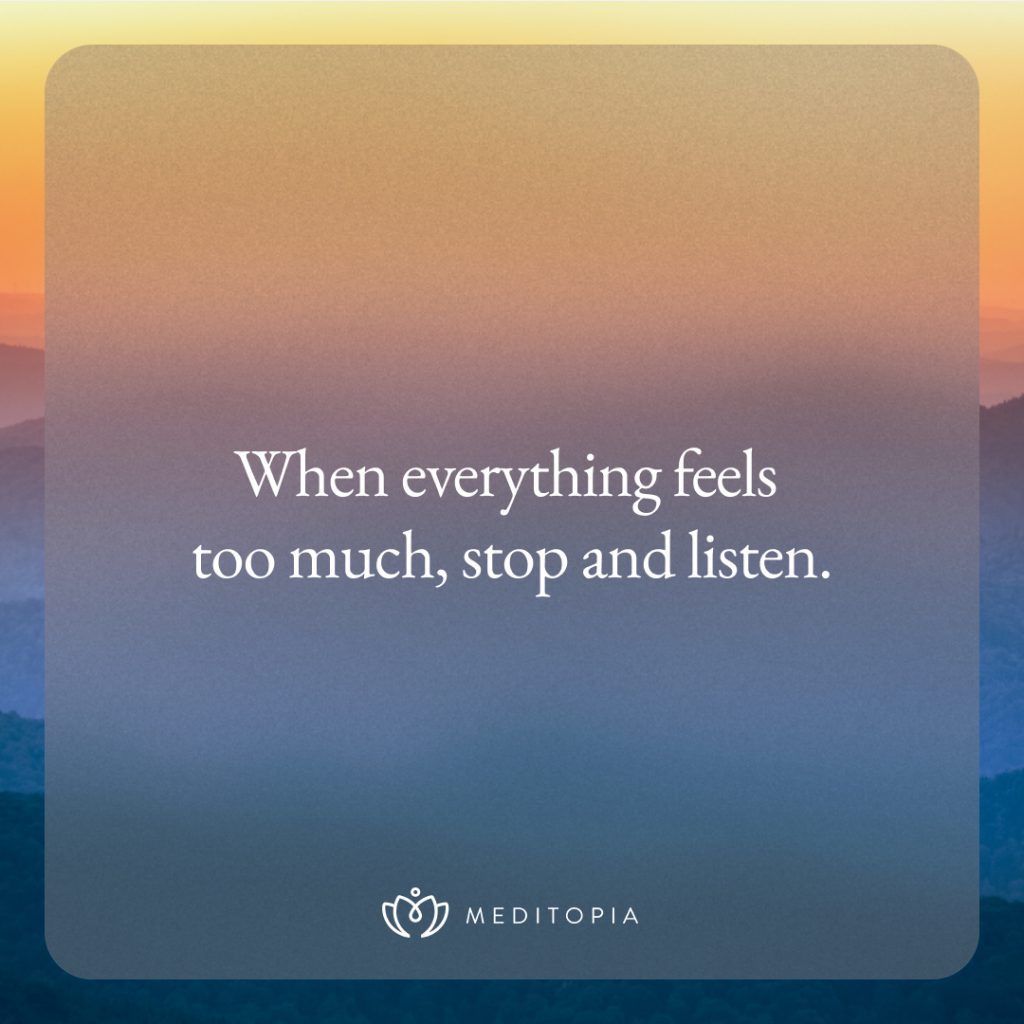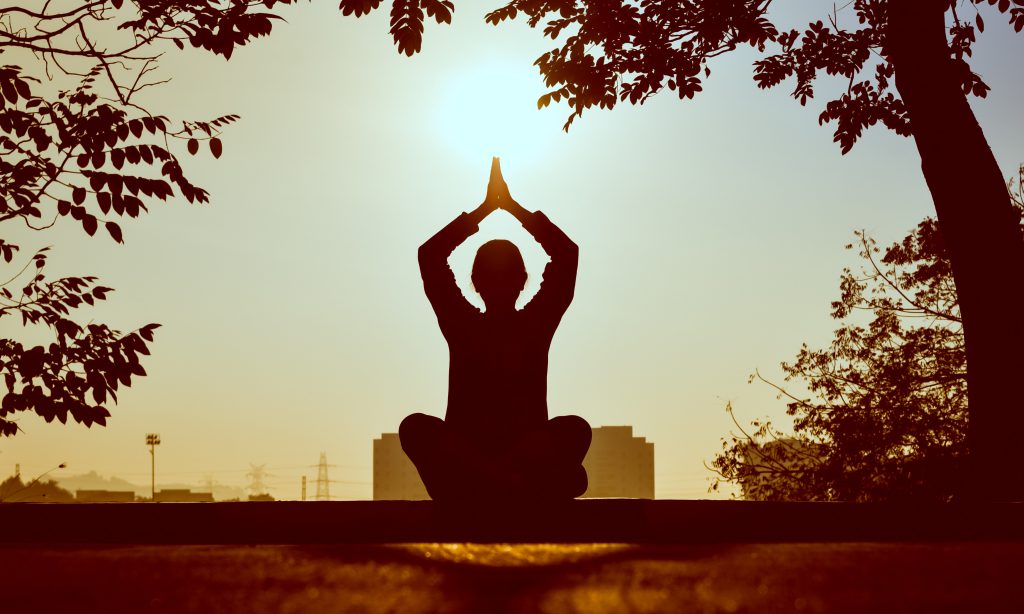The Relationship Between City Living, Intense Working Life & Stress: 10 Tips to Reconnect with Yourself

Content
We all feel the exhausting effects of city life from time to time. Living in big, densely populated areas can be a struggle both financially and emotionally. However, even in the small-scale cities where daily life doesn’t feel so overwhelming, we sometimes get the urge to run away.
Today, we’ll talk about how we define “city life” and some of its stressful effects. You can, however, minimize these effects with some small changes, creating a more sustainable lifestyle and maintaining a more balanced working life.

City Life & Stress
Let’s first define “city life.” When we talk about living in a city, we generally mean living in an apartment in an area with less greenery and many buildings and roads. Cities are places where we’re often exposed to artificial light and get used to being in closed spaces. Sometimes the only greenery that we see in a day is a tree planted on the sidewalk. Of course, there are always exceptions. While in some cities it’s impossible to see the sky because of tall buildings, others are more spread out and spacious. However, no matter how the structure, cities are places where many people occupy the same environment. We may share our physical space with tens, even with thousands of people.
When we think about it on both a physical and mental level, humans have transitioned to this lifestyle only very recently. Even though we as Homo sapiens have lived in small communities for ages, this lifestyle with electronic devices, vehicles, and screens is still quite new for us. Our bodies aren’t used to being squeezed into small spaces in high-rise buildings. However, the reality is that most of us work in offices or from home where our movement is relatively limited.
One of the most important causes of the increasing number of anxiety disorders and burnout is this lifestyle we can’t adapt to that forces us to shrink our existence.
Think for a moment. You descend from a generation who used to spend the whole day wandering around endless plains or on mountains. Your ancestors used to wake up with the sunrise, gather food, and witness all the lunar phases with their own eyes. Of course, there was a risk of being attacked by wild animals and then they started to live behind walls built to protect themselves.
However, our body and mind don’t evolve at the same rate at which technology develops. We carry a reptilian brain within our bodies as we navigate the world of smartphones and technological advancements. Our system is constantly trying to survive with all these changes and stimuli. As a result, this can manifest as psychological and physical disorders.
Let’s talk about stress… What does it mean to be stressed? The scientist who first came up with “Stress Theory,” Hans Selye, defines stress as a “nonspecific response of the body to any demand.” This definition includes all responses of the organism to external stimuli. It means we need stressors in order to respond to the external conditions and to adapt. However, it’s more ideal for the organism to move forward with change when these stressors are removed. What makes us perceive stress as negative in our daily lives is the constant flow of stressors. We’re continuously exposed to conditions that aren’t optimal, requiring change and adaptation. So, when stress becomes constant, it starts to become destructive.
The same applies to working life. In such a demanding environment where individuals are expected to meet certain expectations and work towards revealing their potentials, stress comes naturally. The chaotic city life combined with ambitious work conditions leads us to search for ways to manage our stress, now more than ever.
Before sharing ways to navigate your stress, let’s look at the factors of city life that can impact how we experience stress within our bodies, sometimes causing or intensifying it.

1. Unbalanced Circadian Rhythm
Our circadian rhythm is basically our sleep-wake cycle. Our body regulates the sleep-wake hours based on the movement of the sun, secreting hormones based on the sun’s cycle. For example, just after sunrise we start secreting hormones that wake us up.
Under city conditions, no matter how much natural light we have in our house, not being directly exposed to sunlight may impact the cycle of these hormones. Moreover, because we’re constantly exposed to artificial light via TV, laptop, and smartphones even after it gets dark, our body can’t understand that it’s time to sleep. Places like the subway, shopping malls, or offices where we’re exposed to artificial light can also impact this cycle. The sun is one of our main resources to balance our natural sleep rhythms. During your breaks on your work days go outside for a 10-minutes walk or just grab your coffee and drink it on the balcony. On the weekends make sure that you spend time outdoors, having any kind of activity that will both enable your body to move and get some sunlight.
2. Lack of Exposure to Greenery
Studies show that people who connect with greenery and nature more are less likely to have mental health issues.
Even though the underlying causes aren’t exactly known, spending time around trees can have a healing effect. Trees, animals, and other elements in nature used to be our compass, guiding our daily lives. We could determine the directions by examining the age of a tree, the moss covering it, and its leaves. This used to guide us through our survival and create a foundation that made us feel safe. Therefore, the connection with nature absolutely has a soothing effect, reminding us that we’re part of it.
By going to a park or going for a walk in the forest, we can easily find the perfect atmosphere to calm our system by focusing on our senses or spending time away from our screens or other similar stimuli.
3. Air Pollution
The impact of environmental pollution, which has been increasing around the world, is much more visible in big cities. The air we breathe is quite polluted by the fuels we use and the gas emissions of surrounding factories.
The parks in the city centers or the forests nearby aren’t sufficient enough to clean this pollution, especially as it’s further intensified by busy roads. Even though there’s no major change in the quality of air we breathe, when it’s constant it causes stress on a cellular level and our body starts to sound the alarm.
4. Packaged Food Consumption
In the fast-paced city life, finding time to eat can be quite hard, let alone preparing meals every day. So, at times we just order something or on the go, not pausing to enjoy our food.
No matter what kind of food we’re consuming, when we’re in a rush or constantly thinking what we’ll do next, we can lose sight of our body’s needs. We need to nourish our bodies in the same way we care for our minds.
Reconnect with Yourself in City Life
Of course, the only solution to all what we’ve discussed so far isn’t to escape from the city center and to settle down on a mountain! It’s possible to minimize these effects and improve your mental and physical health. Here are 10 tips that may be helpful for you to reconnect with yourself throughout the hustle and bustle of city life and maintain a balanced working life.
1. Connect with Nature
At least once a week (or if that’s not possible, every two weeks) spare some time for yourself and try to go somewhere green. You can go to a park and spend a couple of hours there alone or you can discover the green areas around your city. You can meet your friends outdoors and this way you don’t have to compromise your social routine while encouraging your friends to spend more time in nature. For this activity, you can pair it with things like reading a book while having a picnic, doing some yoga, or rollerblading.
2. Meditate

Mindfulness meditation practices can help you get away from your busy mind for a while. In our daily lives, we often push our minds to its limits while working, doing the house chores, fulfilling our responsibilities, etc. And stressors like traffic make it inevitable that we’ll get lost in our thoughts, which can tend to be negative. Mindfulness practices help us take a step back and get away from the rush of our mind by focusing on our breath, our senses, or on our body. When we visit this calm state regularly, it becomes much easier to maintain our inner strength and stability. You can try taking mindfulness breaks every day, even for just a few minutes. Because our mind functions based on routine, practicing regularly is the key to making meditation a habit and reaping all its benefits. Instead of setting strict rules for yourself, you can be more flexible and pick practices that you can and like to do. For example, you can try simple mindfulness practices like focusing on your breath or recognizing the colors around you.
3. Incorporate Movement into Your Life
Any kind of movement can be very beneficial for your body. Engaging in an activity that makes you notice your body or increases blood flow can be good both for your health and for your mood. Sweating while working out helps you detoxify your body. Regular exercise also helps you regulate your sleep routine as well.
It doesn’t matter whether you lift weights in the gym, exercise in the closest park, dance, or stretch! Just pick an exercise that you enjoy the most and try to incorporate it into your daily life.
4. Try Breathing Techniques
Connecting with your breath has the power to bring you to the present moment. Especially when you’re working it’s always a good idea to take breaks to ground yourself in the here-and-now. It helps you ease your mind and focus even better when you feel ready to continue working.
There are various breathing techniques that can help you either relax or get energized. For example, through applying square breathing technique whenever you feel tense or overwhelmed during the day, you can let your nervous system know that you are safe and you can relax your body.
Follow this sequence: Inhale slowly as you count to four. Hold the breath for another four counts. Exhale slowly as you count to four and hold the breath again for another four counts. Repeat this pattern four times.
5. Connect with the Sun
No matter where you live, don’t forget to allocate some time to connect with the sun. You can sit on your balcony or go to a park. Connecting with the sun both regulates our sleep cycle and increases the vitamin D in our body, which contributes to more balanced body functions and a stronger immune system.
6. Morning Routine: Greet the Birds and the Sun
You probably wake up every morning around the same time in the same room. However, are you aware of your connection with the room in which you wake up or the neighborhood you live in? Instead of checking your phone the moment you wake up or immediately starting the daily chores, what about noticing the emotional details around and within you? If you have any houseplants, maybe you can watch them, or perhaps you notice the sounds of your pets if you have any. If not, you can try to notice the emotional details of the scene you see through your window.
For example, look at the street. Maybe you see colorful billboards, people coming and going, cars on the road, etc. Or maybe you’re looking at a garden and see people walking in the morning. Wherever you are, try to notice the birds singing or see the clouds in the sky, greeting them and expressing gratitude for their presence.
This practice can help you start your day calmly by strengthening your feeling of being grounded and centered. It’s a nice way of saying “I’m here and present in the moment” as you relax your nervous system by being in community with your surroundings.
7. Evening Routine: Greet the Moon
Just like you do in the morning, try to look at the sky before going to bed. What does the night sky look like? Notice the phase, brightness, and placement of the moon. This way, you can deepen your relationship with the lunar cycle and closely witness the cycle of nature.
Even though the stars aren’t always visible in the city, you can observe the brighter or more visible ones and try to get more familiar with the planets and stars with some apps you can download on your phone.
With these practices of getting away from the feeling of being trapped, you can remember that you’re a living being in harmony with nature. It doesn’t matter wherever or under whichever conditions you’re living.
8. Grow Houseplants
Observing the growth of a living creature increases our capacity for bonding. So, you can try sharing your home with some houseplants. When you share your life with a living thing with different daily needs, you can increase your capacity to empathize with those around you by paying attention and attending to those needs.
While plants trigger our senses with their colors and shapes, they also change the atmosphere in our homes by adding a more vital and natural look to it.
9. Oils and Herbal Teas for Your Sleep Routine
Aromatherapy is a field that operates using the physical and mental effects of plants. For this purpose, the essence of the plants is extracted through a process of distillation. In aromatherapy, plants are used for different purposes. Some plants have chemicals that help us relax and some can have more energizing effects.
You may have heard that some herbal teas help our body relax and get better sleep. If you want to relieve your stress after a long day and have a calmer mind before going to bed, you can try chamomile, lavender, lemon balm, or French lavender tea.
To regulate our sleep, we can also use essential oil scents through a diffuser or room spray.
You can check which plants are best for your body. Just make sure that you’re not allergic to certain plants or the medication you use so that you don’t have any complications with them.
10. Prepare Your Own Food
If you order food a lot because of your busy schedule, you can try preparing your own meal at home once a week. If you don’t have this habit, you can start with simple recipes. You can visit your grocery store to buy vegetables of different colors and this way you can also see how vegetables change throughout the seasons.
Nurturing yourself can be a good mindfulness and self-care practice. By picking your own ingredients, you’re more attuned to your own needs. You can also turn the process of cooking into a meditative state by focusing on your senses while chopping, cutting, and smelling.
Did you find any of these tips helpful? Please share your thoughts with us if you try any and let us know which ones work best for you.
Translator: Damla Saydam Çizme

